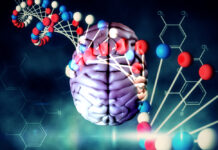Researchers studying almost 50,000 people with depression and anxiety found a potential genetic component in less than 500. Nonetheless, they told 121 of those people that this was an “explanation” for their mental health issues.
The researchers looked for “rare pathogenic copy number variants (CNVs),” which are genetic mutations in which the number of copies of a gene varies between people. CNVs are surprisingly common and do not always lead to health problems, and some are associated with physical health issues such as cancer. However, the researchers identified 31 potential CNVs that were more likely to be associated with “neuropsychiatric” issues.
The researchers then examined genetic and mental health diagnosis data from 90,595 people who received health care through Geisinger. 708 (0.8%) were identified as having a “pathogenic CNV.” A little over half (49,588) of the people in the study had a history of anxiety and/or depression; of those, 470 (0.9%) were identified as having a CNV.
To put it another way, less than 1% of the people with mental health diagnoses had one of the 31 “pathogenic CNVs.” And not everyone with a CNV experienced anxiety or depression—238 (33.7%) did not have any mental health problems, despite having a CNV.
One tenet of good science is the principle “correlation does not equal causation.” The researchers do not even give lip service to this scientific tenet—instead, they claim that “Neuropsychiatric disorders (NPDs) are common, complex disorders with clear genetic causes.”
 The study was led by Christa Lese Martin at the Geisinger Autism & Developmental Medicine Institute and published in the top-tier journal JAMA Psychiatry.
The study was led by Christa Lese Martin at the Geisinger Autism & Developmental Medicine Institute and published in the top-tier journal JAMA Psychiatry.
Although the researchers admit that their results can’t help guide treatment, nor provide any “medical management implications,” they insist that the identification could be “perceived as highly valuable in personal or social ways.”
To test this, the researchers informed 121 people that their “pathogenic CNV” was the reason for their mental health problems. The majority responded with “poignant reactions.”
According to the researchers, “It was common for participants to have a perceived explanation for their personal and/or family history of NPD, often attributing it to social circumstances (e.g., trauma, family disruption, history of abuse). Participants expressed relief and satisfaction at finally having a medical explanation for a lifelong history of learning and behavioral struggles.”
A number of the participants then expressed concerns about passing along their “pathogenic CNVs” to their “children and grandchildren.”
Many of the 121 participants had believed that their distress was due to external factors—experiencing trauma, family disruption, and a history of abuse, for example. The researchers then “informed” them that their distress after experiencing abuse was actually a sickness due to their pathological genetic code.
The researchers do not explain how 49,118 people in the study could have the same reaction to environmental stressors without the “pathogenic CNVs.”
Previous research has found that genetic testing is useless for mental health problems, even for disorders that have an assumed biological etiology, such as “schizophrenia.” One study found that sequencing the entire genome explained 2.28% of whether a person had a schizophrenia diagnosis.
Another study purported to explain 3.4%. Finally, researchers attempting to sequence the “exome” found that their results provided no relevant data, even when investigating variants in genes “known to have a neuropsychiatric phenotype.”
Those researchers suggested that:
“It is not the case that a disruptive or damaging variant in a gene known to have a neuropsychiatric phenotype should be viewed as likely to be pathogenic.”
****
Martin, C. L., Wain, K. E., Oetjens, M. T., Tolwinski, K., Palen, E., Hare-Harris, A., . . . & Ledbetter, D. H. (2020). Identification of neuropsychiatric copy number variants in a health care system population. JAMA Psychiatry. Published online July 22, 2020. DOI:10.1001/jamapsychiatry.2020.2159 (Link)















Thanks Peter.
People will try just about anything to maintain their biases and prejudices, so we should not be surprised that they pretend to be scientific about anything that is not wanted. Even the word “science” impresses a lot of people. You would be surprised how many doctors remain impressed by “science”.
One would think that after studying the field of science and chemistry, that one would not be impressed at all. Interesting yes, because of it’s infinity. Developing false theories and then chasing them is quite understandable considering the narrow focus most humans possess.
Report comment
This is one of the more damning science news reports we’ve published. What a blatant example of bad science, with a eugenics twist to boot. As Peter excellently explains them, all the flaws in this study are blatantly obvious. And yet they’re published in a top journal, and the authors’ obviously erroneous conclusion is allowed to stand. This study should have been rejected at the reviewing stage.
Report comment
I’m super concerned about the ethical implications for the researchers who “studied” lying to people about the origins of their emotional distress. I hope there will be some kind of formal consequences for these “scientists”. This is truly disgusting and mind boggling.
Report comment
The “researchers” are journalists and linguists, with some scientific background, paid by psychiatry. And psychiatry is our government, and changing from one party to the next is obviously not going to change anything.
Report comment
Excellent article! Were the psychiatrists tested for the genetic causes of their moral defects?
Report comment
I’m not sure why they don’t test physical things like “speed”, or the structure of a body that makes one a natural at dance, or running, or athletics. How about art or singing? All of these unique differences yet we don’t diagnose “illness” if you can’t be an athlete.
That spectrum thing being illness of the brain only works, because they can make anything up about it. People that have not learned to think will be easily taken in by explanations.
“this person runs like that because they have an illness”. And I don’t think anyone is forced to run better by feeding them chemicals or operating or shocking the body. But children are forcefed chemicals to sit still in a classroom. It’s that genetic spectrum thingy we gotta control
Report comment
I like that example and have used it myself. What if we dianosed kids who aren’t good at sports with “athletic deficit disorder.” It would be “treatable” with stimulants, too! Stimulants would improve athletic performance, speed, quickness, concentration, intensity… what would parents and teachers have to say if stimulants were recommended “treatment” to make kids better at sports?
Report comment
Oh but Steve, that is a horrible misuse of what the chemicals were “designed” for. 🙂
Report comment
Caroline’s asking the real follow-up questions here.
Report comment
Exactly Caroline. And would they not need to test each client for the genes? Instead of asking the magic questions to which there are no right answers?
Report comment
I have “rescued” dogs and dealt with rescue organizations. There are good, sometimes a bit misguided, and mediocre agencies.
There are small ones and large organizations. On the whole I have noticed that the larger they get and if they have government funding, their sensibilities or common sense leaves in exchange for bureaucracy. They want complete control and often at the risk of the dog. It is mostly because of politics. Agencies that started out with the right reasons, suddenly become corporate. And all of a sudden there is a surplus of dogs who are “bad” and need to be put down.
The smaller ones take care on who the dog is, not what it is. The good ones sometimes make the decision that a certain dog is NOT adoptable, and keep it at their own home or a joint foster home, where the dog essentially gets to live a safe life.
It is NEVER said that there is something “wrong” with the dog. It is said that something happened to it, and accommodations are made to cater to it’s needs. Some dogs will not go near their food if other dogs are around, and a knowledgeable owner will then know that even if stress is not noted at other times, even the smell or sound of another dog will most likely maintain a certain stress factor in that dog.
Perhaps a dog is overwhelmed by affection or a leash. Perhaps one can notice by observation that the look or body change when the dog sees a bat or a fishing rod. We make accommodations for their needs, because of possibilities of what happened to them. Now of course, no one usually knows WHAT exactly happened to them, but we are clever enough to know that dogs come equipped with the right stuff in the right environment. Of course there are genetics to each and every being, but those genetics are NOT illness, nor is the “coping mechanism”. To not want to eat around other dogs and shake if another dog comes is due to the threat. So is biting. These are simply ways of coping to the memory of what transpired, or an innate sense of the power inequalities, that the dog can sense, but the human often refuses to see happening between dogs. And that cannot be “fixed” often, nor should it EVER be forced. It is the dogs right to feel safe and not pushed into environments and ideals where he is seen as the bad dog.
Report comment
“Genetic Testing May Explain Less Than 1% of Mental Health Issues.” That would explain why the doctors/psychiatrists don’t bother to do genetic testing, prior to stigmatizing people with the DSM disorders.
But what’s good is we have found the iatrogenic, not genetic, etiology of both “bipolar” and “schizophrenia.” The ADHD drugs and antidepressants can create the symptoms of “bipolar.” And the antipsychotics/neuroleptics can create the positive symptoms of “schizophrenia,” via ‘anticholinergic toxidrome’ poisoning. As well as the negative symptoms of “schizophrenia,” via ‘neuroleptic induced deficit syndrome.’
Report comment
Well SE, I guess those reliable genetic tests are simply too costly 🙂
Guess they will just stick with prejudicial “ass-essments”. Really crude,
backwards and so very draconian.
Pat yourself on the back for figuring the experts out. It takes thinking and observation.
Report comment
Reliable tests are very dangerous to the psychiatric hierarchy. They threaten to prove that psychiatry is full of crap. The last thing the psych profession wants is any kind of reliable test!
Report comment